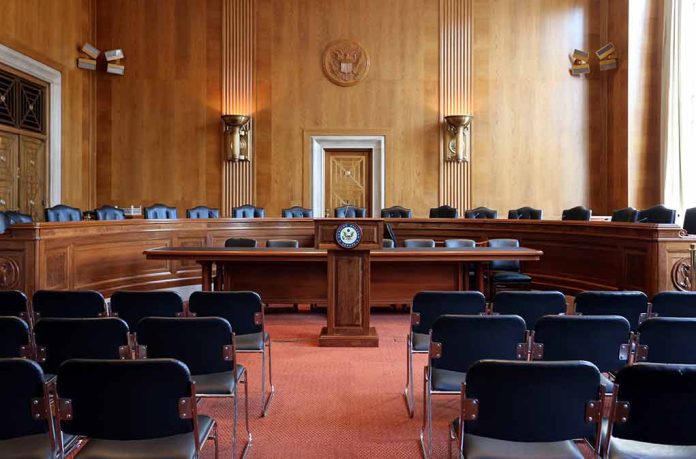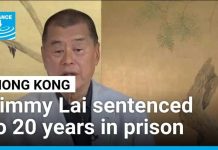
Four mayors of sanctuary cities faced intense Republican questioning at a contentious congressional hearing, defending policies that limit cooperation with federal immigration authorities while being accused of endangering American citizens.
Key Takeaways
- Mayors from Boston, Chicago, Denver, and New York testified before the House Oversight Committee defending their cities’ sanctuary policies while facing Republican accusations of violating federal law.
- New York Mayor Eric Adams claimed sanctuary status was beyond his control due to city, state, and federal law constraints, while also denying any “quid pro quo” related to dropped federal charges against him.
- Republicans highlighted crimes committed by illegal immigrants released from local custody, while Democratic mayors cited decreasing crime rates and argued sanctuary policies build community trust in law enforcement.
- Denver Mayor Mike Johnston was questioned about a case where an illegal immigrant was released and later assaulted ICE officers, highlighting tensions between local and federal authorities.
- The six-hour hearing revealed stark partisan differences on immigration policy, with Republicans suggesting prosecution of sanctuary city officials and mayors calling for comprehensive immigration reform.
Democratic Mayors Defend Sanctuary Policies Under Fire
The mayors of Boston, Chicago, Denver, and New York testified before the House Oversight and Government Reform Committee, defending their cities’ policies limiting cooperation with federal immigration authorities. The hearing quickly highlighted the deep partisan divide on immigration policy, with Republican committee members arguing that sanctuary laws violate federal immigration standards and the Constitution’s Supremacy Clause, while Democratic mayors insisted their policies enhance public safety and follow local and state laws.
Boston Mayor Michelle Wu defended her city’s position, stating, “The Constitution, as I understand it, doesn’t require cities or police officers or anyone to follow … federal laws in conflict with local laws or state laws.” This legal interpretation drew sharp criticism from Republican representatives who maintained that federal immigration law should supersede local ordinances. The mayors consistently avoided using the term “sanctuary” throughout the hearing, instead framing their policies as community trust initiatives.
Boston Mayor Michelle Wu struck a defiant tone in her prepared remarks for a House hearing on immigration enforcement, defending the city’s approach and criticizing the Trump administration’s push to deport undocumented immigrants.
Follow live updates: https://t.co/2D8V9ccu1P pic.twitter.com/INoDvu8xXe
— The Boston Globe (@BostonGlobe) March 5, 2025
New York’s Adams Claims No Control Over Sanctuary Status
New York Mayor Eric Adams took a somewhat different approach, suggesting his hands were tied by various legal constraints. “Over the last three years, federal law did not allow me to stop buses from entering New York City. State law required me to provide all in our city with housing and meals and to educate children. City law makes it unlawful to collaborate with ICE for civil enforcement,” Adams stated. His testimony drew particular attention as it came after federal prosecutors recently sought dismissal of charges against him.
When pressed about cooperation with Immigration and Customs Enforcement (ICE), the mayors gave varying responses but generally maintained that their policies distinguish between criminal and administrative warrants. This distinction allows them to cooperate with federal authorities in criminal cases while limiting involvement in civil immigration enforcement, a position that Republicans on the committee found unsatisfactory and potentially dangerous.
Public Safety Claims Challenged by Republicans
Committee Chairman James Comer argued that sanctuary policies “only create sanctuary for criminals,” highlighting cases where illegal immigrants released from local custody later committed serious crimes. Denver Mayor Mike Johnston faced particularly pointed questions about an incident where an illegal immigrant was released from custody and subsequently assaulted ICE officers attempting to detain him, raising concerns about the real-world consequences of limiting cooperation with federal authorities.
The mayors consistently pointed to declining crime rates in their cities as evidence that their policies are working. They argued that maintaining trust between immigrant communities and local law enforcement is essential for public safety, asserting that requiring local police to act as immigration agents would undermine this trust and make communities less safe overall. ICE officials have countered that non-cooperation strains their resources and can endanger agents who must apprehend individuals in community settings rather than secure facilities.
Calls for Immigration Reform Amid Partisan Divide
Throughout the six-hour hearing, the mayors repeatedly called on Congress to address comprehensive immigration reform rather than criticize local policies. Denver Mayor Mike Johnston made a particularly pointed appeal, “If Denver can find a way to put aside our ideological differences long enough to manage a crisis we didn’t choose or create, it seems only fair to ask that the body that is actually charged with solving this national problem this Congress can finally commit to do the same.”
Republican committee members suggested that sanctuary city officials could potentially face prosecution, though legal experts have expressed doubt about the viability of such prosecutions. The hearing, while contentious, was notably described by Chairman Comer as the “best-behaved” session of the Congress, despite the fundamental disagreements on display about the proper relationship between federal immigration enforcement and local governance in America’s cities.
Sources:
Big City Mayors Congressional Hearing Testimony Defending Sanctuary City Policy
Republicans hammer mayors of Boston, Chicago, Denver and New York over ‘sanctuary city’ policies



